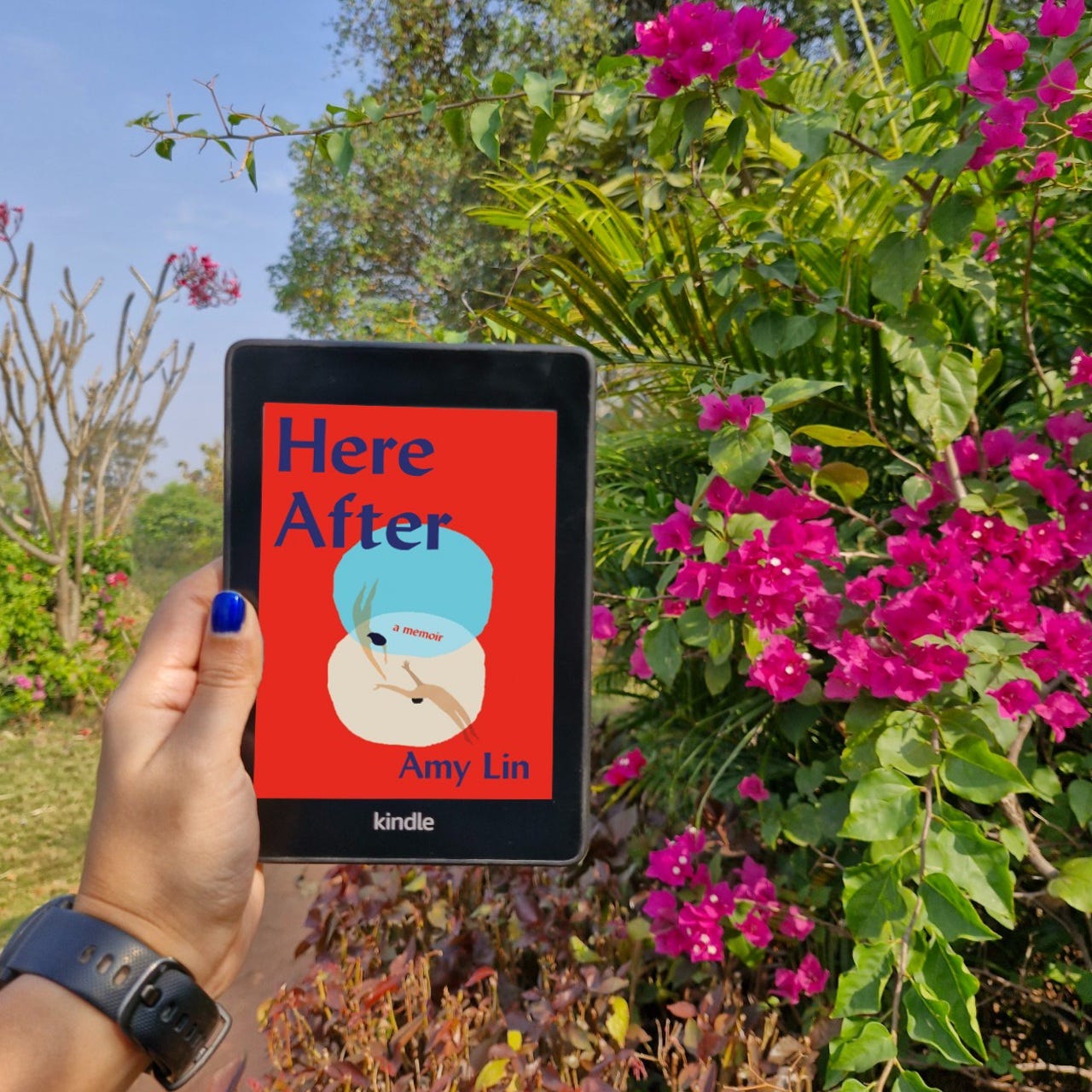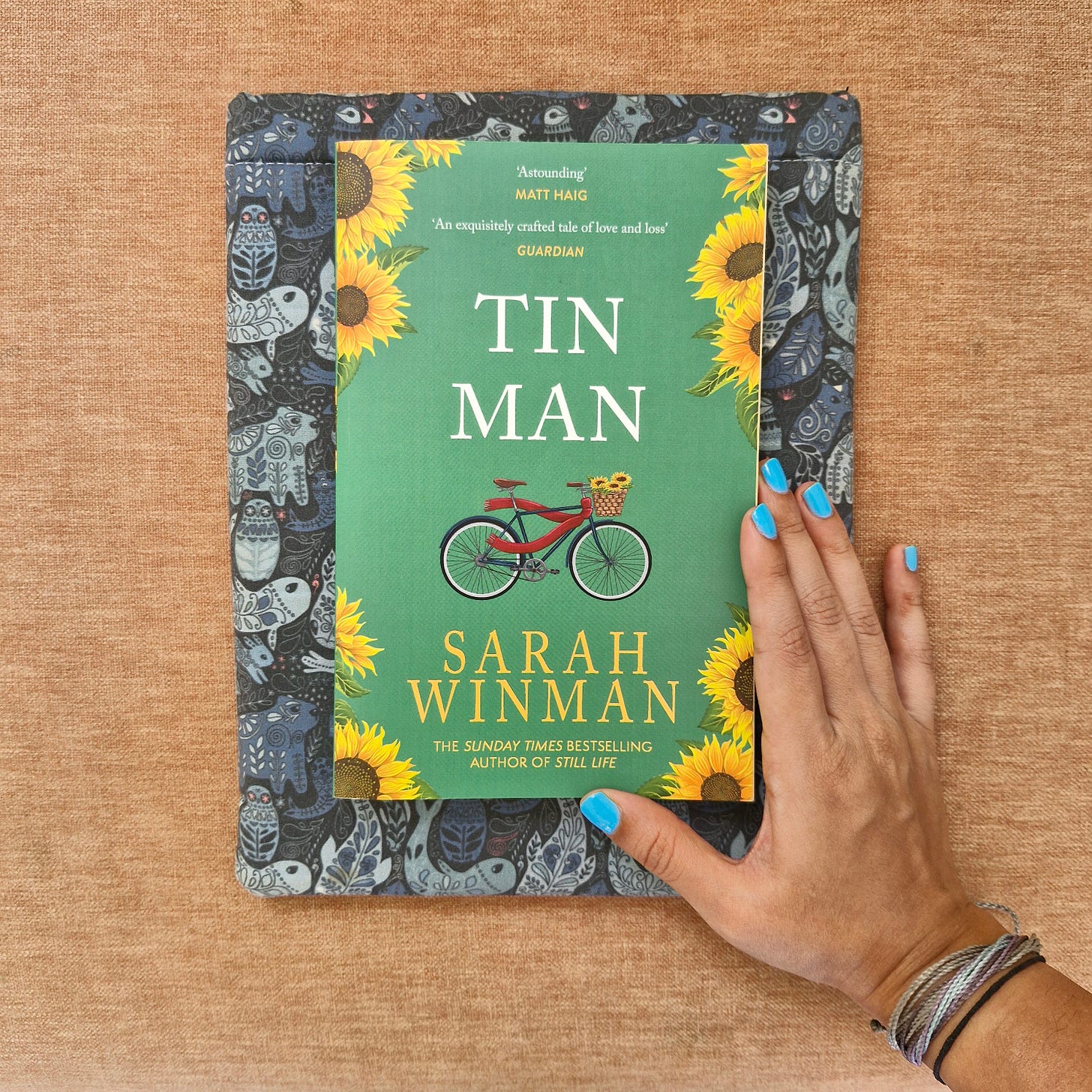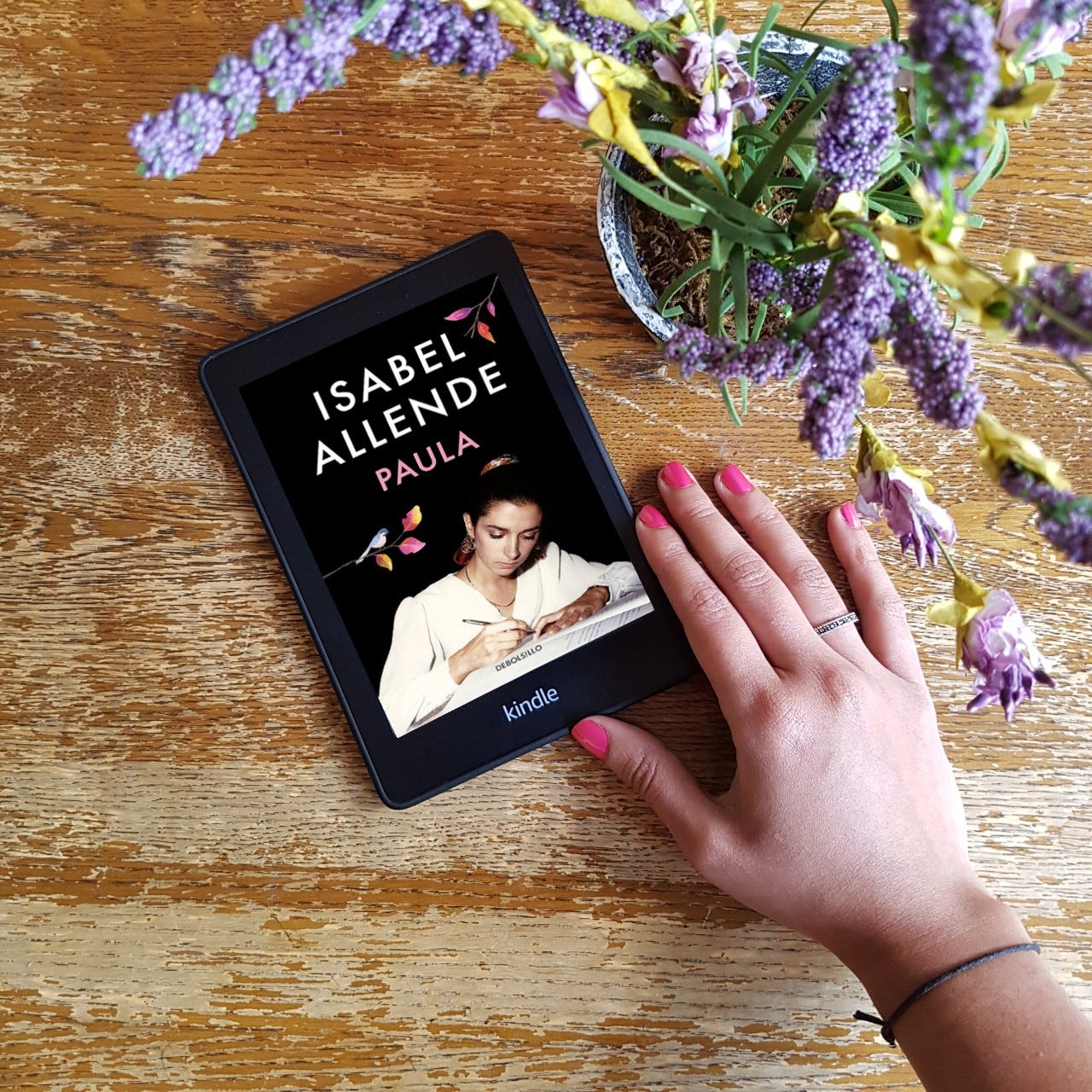Anu Recommends #48
Three books on grief, loss, love, and hope
Dear reader,
Recently, through a combination of plan and surprise, I happened to read, almost back to back, three books that dealt with very similar themes—Here After by Amy Lin for an author interview that will soon be published on Write or Die Magazine (here is the first one I did for them this year, with Andrés N. Ordorica), Tin Man by Sarah Winman because it simply felt like the right time (I shared brief thoughts on it in the previous issue), and Paula by Isabel Allende because it was the oldest unread book on my Kindle which I realised after my latest deep clean.
It was only when I took a few steps back that I truly realised exactly how much they resembled each other, and were yet unique narratives that stood on their own.
This is going to be another longer, chattier issue that Substack helpfully informs me is over the email length limit, so it’s better for you to switch over to read in your browser now, than when it cuts you off below! Just click the ‘view in browser’ link at the top of this email.
“How can grief be so universal and yet still so widely misunderstood?”—Here After by Amy Lin
Written in the aftermath of the sudden, shocking passing of her perfectly healthy 32-year-old husband, Kurtis, this nonlinear narrative composed of vignettes is as much an unflinching, intimate look at young widowhood as it is an act of remembrance, a celebration of him, his life, and their love; as it is an acknowledgement of everything lost.
Writing is the only place she can “meet grief without being utterly consumed by it” and so, when her therapist asks her to talk about her feelings, share them with someone so she doesn’t burst, she chooses to write letters to strangers, instead. Every week, she sits down and writes into the void of a newsletter (At the Bottom of Everything), and so her burden is shared, spread out amongst many instead of foisted on a few, which she says made it easier to lay bare the depths of everything she never imagined she’d have to face so young.
“I never think there are words for what I am feeling but somehow, each time, I begin to type.”
“Writing about my grief is so agonizing, so exhausting, I always think I will need to stop. Yet, I do not.”
This is a memoir of pared down but luminous and tender prose, the simplicity of which belies the heft and depth of its reality, its hard-fought wisdom, and its oftentimes searing emotional honesty. Amy beckons, softly, asking only that we allow space for and witness her most vulnerable self as she navigates the minutiae of existence after life-altering grief; only that we do the same for the grievers in our lives after we step outside the pages of this slim volume, on purpose published in a size small enough to carry.
What happens next, in the here after?
“Men and boys should be capable of beautiful things.”—Tin Man by Sarah Winman
It begins and ends with sunflowers.
Freedom. Beauty. Possibility. Hope.
But also loss and love and longing and pain.
Until now, my only experience with Sarah Winman was Still Life, a book I inhaled and adored, which found me exactly when I needed it and one I know I will return to. Then a friend (thanks, Abi!) recommended Tin Man, which is her favourite by the author. It took me a while to track down a copy of this surprisingly hard-to-acquire book, which is a story in itself, but one for another day, and I finally got around to reading it earlier this month.
Ellis and Michael have known each other since they were young boys living in Oxford. We trace the threads of their adolescent friendship until it becomes something more. A decade or so later, Ellis is married to Annie, and a work injury forces him back into the past, especially the years in between, until the POV switches and Michael fills in some of the gaps.
There are stories that show, ones that tell, others that do a bit of both—I’m not fussy as long as the story pulls me in and keeps me there. In Tin Man, Winman chooses to mostly show—in lyrical language that would feel trite and surface and try-hard on another occasion but here somehow doesn’t when taken in the context of the whole—while leaving plenty of spaces for us to imagine and bring our own meaning. And because there is something achingly real about these characters, because the grief and the love and the messy navigation hits right at your core, you don’t mind as much when the plot, especially in its moments of tragedy, feels reliant on manufactured contrivances.
“And I wonder what the sound of a heart breaking might be. And I think it might be quiet, unperceptively so, and not dramatic at all. Like the sound of an exhausted swallow falling gently to earth.”
There are numerous moments in Tin Man (which comes in at only 213 pages) when you want to spend more time with Ellis, Michael, and Annie, when you wish for more; more time, more story, more of the depth that you’re already made to work for as a reader.
And yet, I know that even without it, I’ll never forget.
“If I write something, I fear it will happen, and if I love too much, I fear I will lose that person; nevertheless, I cannot stop writing or loving...”—Paula by Isabel Allende
In September 2020, towards the end of the first summer of the pandemic, I picked up The Sum of Our Days by Isabel Allende, knowing that it was the second of her memoirs and that I’d be missing out on potentially crucial connections without having read the first, but feeling strangely pulled towards the copy I’d picked up at my local used bookstore.
This was my experience with it, if anyone’s interested. I do plan on rereading it soon, now that I have those missing pieces in hand, four years later, but this is how it affected me back then.
In December 1991, Isabel Allende’s daughter Paula had an attack of porphyria and shortly after slipped into a coma from which she would never truly wake. At Paula’s bedside in a Madrid hospital, the author was advised to write for survival, mostly hers, but also so she could do what was needed for her daughter’s day-to-day care without losing herself—“My poor Isabel. Here, take this and write. Unburden your heart; if you don’t you are going to die of anguish.”
What begins as a letter to Paula that she hopes will help her daughter piece everything together if she ever wakes soon turns into a history of their family, going back generations of ancestors to Isabel’s own grandparents. Interwoven, because they are intimately connected, is a historical portrait of Chile through the years, including the devastating 1973 military coup, the following dictatorship, and their family’s years of exile (Isabel’s estranged father was a direct cousin of Salvador Allende, who was the country’s president in 1973).
It is in the telling that we realise just how strong the veins of magic realism run through the author’s own life; ghosts and spirits and fables and the fantastical come alive not just in the pages of her novels, but are deeply embedded in their collective legacy.
“This is the kind of detail that is forbidden in literature; in a book, no one would dare combine a full moon with Frank Sinatra. The problem with fiction is that it must seem credible, while reality seldom is.”
As much a raw representation of a tragedy, of a sudden illness and eventual loss of a child as an unconventional autobiography as a record of the story of a specific time in Chile as a tribute to the life, light, and love of, by all accounts, a remarkable young woman. A celebration also of the “ineradicable vice of telling stories” that will continue to be Isabel’s (and our) salvation.
Paula captured my breath (and attention) in a frenzied, visceral way whereas The Sum of Our Days was, in comparison, the slightly more distanced voice of experience no less potent or affecting. Both will remain indelibly inked in my mind.
“Writing is a long process of introspection; it is a voyage toward the darkest caverns of consciousness, a long, slow meditation. I write feeling my way in silence, and along the way discover particles of truth, small crystals that fit in the palm of one hand and justify my passage through this world.”
What are some books dealing with these themes that have particularly spoken to or touched you?
(PS. if you’ve made it all the way here, thank you 😃🤓😉)
Some of you may have noticed that March came and went this year without any Middle Earth March from me—current work, writing, and life priorities hampered MEM 2024, but fear not that the newsletter will be completely devoid of Tolkien this year. There is Hobbit Week in September that I plan to take part in, instead!
Till then, you can go reread (or in case of new readers, read) the issues from last year:
Please feel free send in recommendations—books, movie, TV shows, authors to interview, what you’re currently reading and watching, ideas of what you’d like me to write on, rants/ramblings/excited monologues, GIFs and memes (especially them) and more. Just drop me a line and turn this into a conversation, even if just to say hi and let me know what you thought of the latest issue. Or share this with someone you think might enjoy it. I always enjoy hearing from you 😊
Take care and I’ll see you next on April 14!
Anu
You can find me on Twitter at @AnuNande (follow for all the football chatter) and on Instagram at @booksinboston.






Dear Anu, the sentence about writing as a slow meditation caught my imagination. I always maintain that a writer becomes effective only when he /she writes with first-hand experience. i would love to read these books though i must confess that i usually avoid such themes - escapist, maybe? :)